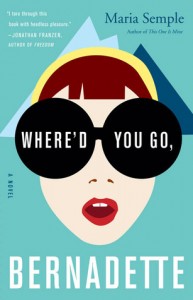 The first epistolary novel I read as a young adult, at least that I can remember reading, is C. S. Lewis’ The Screwtape Letters, a classic book-by-epistle about a demon instructing a junior demon on the many ways to quietly trip up us mere mortals, and a book that will no doubt never cease to be in print. That reading was closely followed, by The Fan, a 1977 thriller-type novel about a Hollywood star slowly terrorized by an off-his-rocker devotee and the entire story is told by letters and telegrams. At least that’s what I think the story’s premise was. That particular book appears to have long been out of print.
The first epistolary novel I read as a young adult, at least that I can remember reading, is C. S. Lewis’ The Screwtape Letters, a classic book-by-epistle about a demon instructing a junior demon on the many ways to quietly trip up us mere mortals, and a book that will no doubt never cease to be in print. That reading was closely followed, by The Fan, a 1977 thriller-type novel about a Hollywood star slowly terrorized by an off-his-rocker devotee and the entire story is told by letters and telegrams. At least that’s what I think the story’s premise was. That particular book appears to have long been out of print.
I like the epistolary novel. Love it, actually. My favorite of late, probably a favorite of many of you is The Guernsey Literary And Potato Peel Pie Society, which I loved, loved, loved.
It’s an intriguing, challenging and unconventional way to tell a story. And I don’t think it’s an easy feat to pull off. I’ve used that device in my own novels and I know how limiting it can be. In fact, I’ve only ever used it to tell part of the book, not the whole thing. In The Shape of Mercy, I used diary. In A Sound Among the Trees, I used letters a Confederate woman wrote to a Yankee cousin and never sent. I remember thinking as I writing Susannah’s letters to her cousin Eleanor in Maine that she was starting to sound like she was narrating the story, not writing a letter. And I didn’t know what to do about it. Letters have a certain feel that is different from narrative.
All that said, I enjoyed Maria Semple’s epistolary Where’d You Go Bernadette. A lot. It was clever, funny, sassy, at times tender and poignant. And if you don’t look too closely at emails that read like narrative, it’s a seamless read that will seriously have you laughing out loud on modes of public transportation.
The story in a nutshell is this: To Bernadette Fox’s husband,”she’s a fearlessly opinionated partner; to fellow private-school mothers in Seattle, she’s a disgrace; to design mavens, she’s a revolutionary architect, and to 15-year-old Bee, she is a best friend and, simply, Mom.Then Bernadette disappears. It began when Bee aced her report card and claimed her promised reward: a family trip to Antarctica. But Bernadette’s intensifying allergy to Seattle—and people in general—has made her so agoraphobic that a virtual assistant in India now runs her most basic errands. A trip to the end of the earth is problematic. To find her mother, Bee compiles email messages, official documents, secret correspondence—creating a compulsively readable and touching novel about misplaced genius and a mother and daughter’s role in an absurd world.”
Some of my favorite lines are these:
“Maybe that’s what religion is, hurling yourself off a cliff and trusting that something bigger will take care of you and carry you to the right place.”
“I felt so full of love for everything. But at the same time, I felt so hung out to dry there, like nobody could ever understand. I felt so alone in this world, and so loved at the same time.”
“People like you must create. If you don’t create, Bernadette, you will become a menace to society.”
A caveat, though. If you are loyal to Microsoft or you’re Canadian you might feel a tad insulted. I don’t live in Seattle so I am not in the know as to how the average Seattleite looks at the MS techno-giant or the international neighbors to the North. Every novelist has to create a context from which her characters spring, even if it’s a fabricated context or overdrawn from reality. Or right on the money. I wasn’t bothered. But I live in San Diego.
 If you’re looking for something very different in a novel, and need some levity mixed with drama, pick it up. It’s unlike the last novel you read, I’m fairly certain of that.
If you’re looking for something very different in a novel, and need some levity mixed with drama, pick it up. It’s unlike the last novel you read, I’m fairly certain of that.
Unless you’ve been shopping from this Wiki list of contemporary epistolary novels
And if you have been, do please share your favorite. Let’s chat.

Shape of Mercy is one of my favorite books. I liked it better than the Screwtape Letters, to be honest. (And I do love C.S. Lewis, people!)
Holy cow, Pamela. Thanks for that day-brightener!